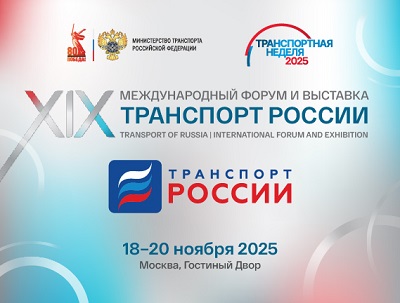The use of liquefied natural gas in the combined power unit of autonomous refrigerated car
https://doi.org/10.21780/2223-9731-2019-78-3-188-192
Abstract
A specific feature of the market for the transport of perishable goods is the length of the routes. As part of the implementation of new technical solutions for isothermal rolling stock, research is being conducted on the development of autonomous power supply complexes. The article discusses combined power supply system of an autonomous refrigerated car (ARC), which includes a diesel generator set and a carriage generator. Possibility of using liquefied natural gas as a motor fuel for a diesel generator set, as well as generator and drive units with a car generator is being evaluated. Taking into account the operating experience of power plants of cars in the mode of unmanned technologies, the advantages of using liquefied gas as fuel are described. Comparative calculation of the costs of various types of fuel by the ARC power plant is given. The advantages of using the utilization of the heat of vaporization of liquefied natural gas (LNG) to increase the cooling capacity of a regular refrigeration unit are substantiated. Article gives comparative calculated economic assessment of fuel costs when using different options for power supply systems on routes when driving at high speed and accelerated refrigerated trains, which allows determining the required onboard fuel supply for different options. The use of LNG as a motor fuel and an additional source of cold for ARC is promising. Autonomy of the car on existing fuel reserves is increased by reducing the operating time of refrigeration and power plants. Reducing operating costs is achieved through savings on the purchase of fuel, since the price of an equivalent amount of LNG is lower than that of gasoline or diesel fuel. Operational advantages of LNG are to protect the fuel system from corrosion and contamination. The use of a generator-drive unit with a car generator will save from 30 to 70 % of the fuel used (LNG or diesel), depending on the speed of the freight train on routes of considerable length.
About the Author
O. A. VoronRussian Federation
Oleg A. Voron, Cand. Sci. (Eng.), Associate Professor, Head of the Department “Cars and car facility”, Rostov-on-Don, 344038, Russia
References
1. Naumenko S. N., Teymurazov N. S. Actual problems of development of refrigerator transport. Zheleznodorozhnyy transport, 2008, no. 4, pp. 88 – 91.
2. Voron O. A., Averkov N. K., Naumenko S. N. Concept of development and creation of isothermal vehicles of a new generation. Vestik of the Railway Research Institute, 2011, no. 1, pp. 29 – 32.
3. Skachkov A. A., Mekhedov M. I., Petrov V. V. Transportation of perishable goods using the “Cold Express” technology. Zheleznodorozhnyy transport, 2018, no. 9, pp. 51 – 54.
4. Voron O. A., Samoshkin S. L., Semenov P. Yu. Fitting platforms with autonomous power supply system — innovative rolling stock for transportation of perishable goods. Transport Rossiyskoy Federatsii, 2015, no. 2, pp. 28 – 30.
5. “Yamal SPG” in 2018 provided 17 % of supplies of liquefied natural gas to the UK. URL: https://ru.investing.com/news/economy-news/article-613249 (retrieved on 26.03.2019) (in Russ.)
6. Belozerov G. A., Babakin B. S., Gryzunov A. A., Pomazkina N. V., Shavtra V. M. Refrigerated transport and containers. Reference book. Ryazan', Ryazanskaya oblastnaya tipografiya Publ., 2010, 296 p.
7. Kondratenko S. E. Prospects for the use of liquefied natural gas as a motor fuel in Russia. Gazovaya promyshlennost', 2017, no. 4, pp. 76 – 82.
8. Cheremnykh O. Y. Prospects for the development of vehicles for liquefied natural gas. Engineering Journal: Science and Innovation, 2018, no. 1, pp.1 – 20. URL: http://engjournal.ru/catalog/pmce/mdpr/1722.html (retrieved on 25.01.2019) (in Russ.).
9. GOST R 56 217 – 2014. Automobile vehicles using gas as a motor fuel. General technical requirements for operation on liquefied natural gas, safety engineering and test methods. Moscow, Standartinform Publ., 2016, 20 p. (in Russ.)
10. Karagusov V. I., Yusha V. L., Karagusov I. V. Use of cold gasification of natural gas for transport conditioning. Transport na al'ternativnom toplive, 2013, no. 5, pp. 66 – 67.
11. Voron O. A. Possibilities of using alternative sources of fuel for power supply systems of large-capacity refrigerated containers. Proc. of RGUPS, 2018, no. 4, pp. 36 – 41.
Review
For citations:
Voron O.A. The use of liquefied natural gas in the combined power unit of autonomous refrigerated car. RUSSIAN RAILWAY SCIENCE JOURNAL. 2019;78(3):188-192. (In Russ.) https://doi.org/10.21780/2223-9731-2019-78-3-188-192
JATS XML
























































